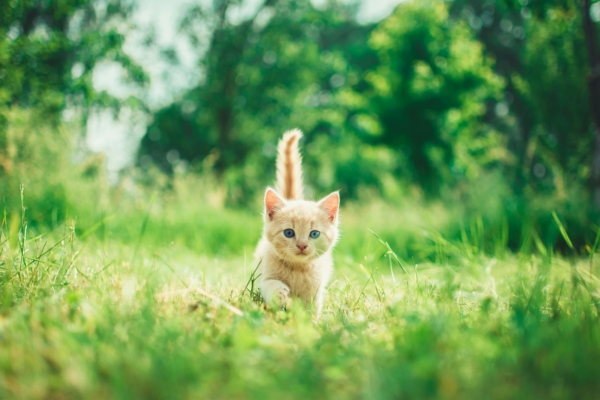What to Do If You Find a Kitten in Hawaii

Spotting a kitten outside can be both heartwarming and stressful. Your first instinct might be to scoop them up and bring them somewhere safe, but sometimes the best way to help is to wait and watch. Many kittens found outdoors aren’t actually abandoned—their mother might be nearby, searching for food or moving the litter to a safer spot. Knowing how to tell the difference between a kitten in danger and one who’s simply waiting for their mom can help you make the right call.
Start by Observing from a Distance
If the kitten looks healthy and clean, there’s a good chance their mother is still caring for them. Outdoor moms often leave their kittens temporarily while they hunt or find a new nesting spot. If you’re unsure, remember that observing a found kitten from a distance can provide valuable insights.
If the kitten appears sick, injured, cold, or cries for a long period of time, they may need help. In that case, reach out for guidance. Our team at Aloha Animal Alliance can help you assess the situation and connect you with rescues and veterinary resources across the islands.
Estimate the Kitten’s Age
Understanding how old the kitten is can help determine what kind of care they need. Newborns require warmth and bottle feeding, while older kittens can usually eat soft food and use a litter box.
Here’s a quick way to gauge age and needs:
Newborn (0–2 weeks): Eyes closed, ears folded, and unable to regulate body temperature.
2–4 weeks: Eyes open, starting to crawl, still dependent on milk.
4–8 weeks: Active and playful, can eat soft food and begin socializing.
8+ weeks: Fully weaned and ready for adoption or spay/neuter.
If you’re unsure, check our Feral & Stray Cat FAQ, which includes photos and tips for identifying age and development.
Keep the Kitten Safe and Warm
If the mother doesn’t return and you’ve confirmed the kitten needs help, gently move them to a quiet indoor space. Young kittens can’t stay warm on their own, so temperature control is essential.
Line a small box or carrier with blankets or towels.
Use a heating pad on low (covered with a towel) or a warm water bottle wrapped in fabric.
Keep the area draft-free and away from noise or pets.
Always warm cold kittens before feeding; feeding a chilled kitten can cause serious health problems.
Get Help from Local Rescues or Fosters
Caring for an orphaned kitten can be rewarding but also demanding—especially for kittens under eight weeks old. You don’t have to do it alone.
We partner with rescues and foster networks throughout Hawai‘i to make sure young kittens get the care they need. If you’ve found a kitten who’s too young to eat on their own, we can connect you with trained fosters who specialize in bottle feeding. For those interested in helping directly, we also provide guidance on how to care for kittens safely at home.
Older kittens (usually eight weeks or older) can transition to solid food and may be ready for adoption or spay/neuter. If that’s the case, take a look at How Much Does It Cost to Spay or Neuter a Cat in Hawai‘i for local clinic information.
Recognize Feral Kittens
Not every kitten found outside is socialized. If a kitten hisses, hides, or avoids touch even after gentle interaction, they may be feral.
Feral kittens under eight weeks can often adjust to people with daily handling and patience. Older feral kittens, however, are typically better supported through Trap-Neuter-Return (TNR) programs that allow them to live safely outdoors without reproducing.
We’re proud to support humane TNR initiatives across the islands. If you’d like to learn more about how these programs work, see Is TNR Advisable for Cats?, which explains how they help balance compassion and conservation in Hawai‘i.
Check for a Family
Friendly kittens may already belong to someone nearby. Before assuming they’re stray, take a few steps to help reunite them with their family:
Have a vet or rescue scan for a microchip.
Post photos on community boards and local social media groups.
Register the kitten on Petco Love Lost, which uses facial recognition to match found pets with lost reports.
Notify nearby shelters and rescues in case someone is searching for them.
We regularly work with partners to reunite families—sometimes even years after they were separated—so don’t lose hope if you don’t find an owner right away.
Helping Kittens, One Choice at a Time
Helping a kitten means balancing compassion with care. Taking time to observe, assess, and reach out for support ensures you’re truly helping—not accidentally separating a family.
At Aloha Animal Alliance, we believe every small act of kindness adds up. Whether you foster, adopt, or share local resources, you’re helping create a safer, healthier Hawai‘i for cats and the people who love them.
